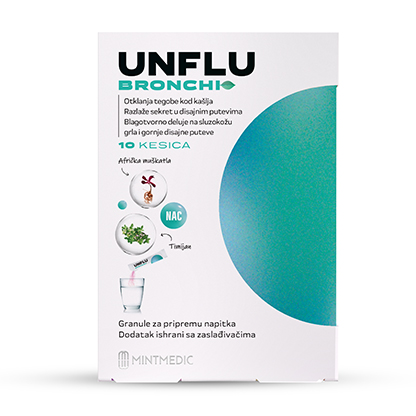MECHANISM OF ACTION
Pelargonium sidoides, the plant known as African nutmeg is a plant whose root is traditionally used for respiratory ailments. The root of this plant contains various compounds (phenols, coumarins, purines), that show antiviral and antibacterial activity, beneficial effects on the Immune System and thus contribute to the proper functioning of the respiratory system.
Thyme herb (Thymus vulgaris) is a plant that is recognized both in folk and official medicine as a medicinal plant that is used to ease inconvinience caused by coughs and colds. The active components from this plant- thymol and carvacrol, enable easier expectoration, and as such have a calming effect on the smooth muscles of the bronchi, as well as posesing an antimicrobial effect.
N-acetyl-cysteine (NAC) is a bioactive compound, an N-acetylated derivative of the amino acid L-cysteine, and as such contributes to the overall antioxidant protection of the organism. In chronic respiratory diseases, it is used as a mucolytic by breaking disulfide bonds in bronchial secretions, breaking down mucus and facilitating expectoration.

